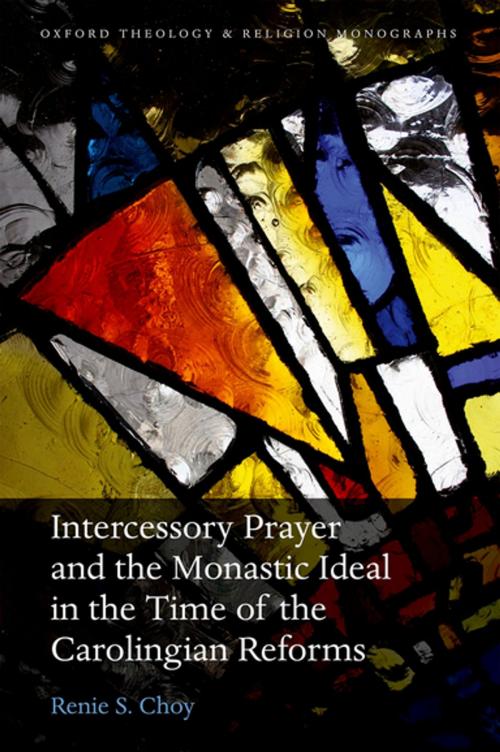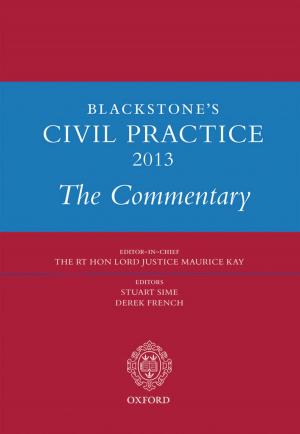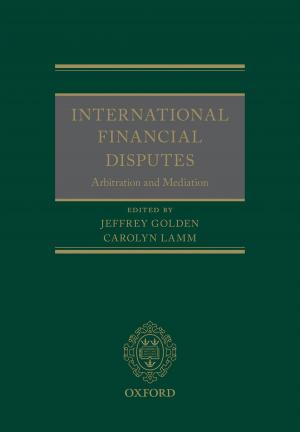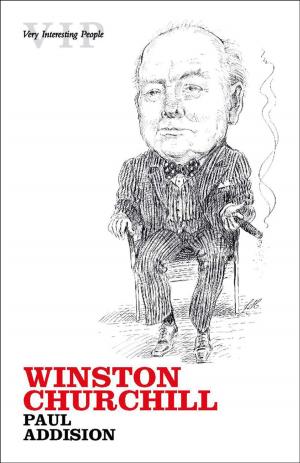Intercessory Prayer and the Monastic Ideal in the Time of the Carolingian Reforms
Nonfiction, Religion & Spirituality, Christianity, Denominations, Monasticism, Church| Author: | Renie S. Choy | ISBN: | 9780192511010 |
| Publisher: | OUP Oxford | Publication: | November 17, 2016 |
| Imprint: | OUP Oxford | Language: | English |
| Author: | Renie S. Choy |
| ISBN: | 9780192511010 |
| Publisher: | OUP Oxford |
| Publication: | November 17, 2016 |
| Imprint: | OUP Oxford |
| Language: | English |
In early medieval Europe, monasticism constituted a significant force in society because the prayers of the religious on behalf of others featured as powerful currency. The study of this phenomenon is at once full of potential and peril, rightly drawing attention to the wider social involvement of an otherwise exclusive group, but also describing a religious community in terms of its service provision. Previous scholarship has focused on the supply and demand of prayer within the medieval economy of power, patronage, and gift exchange. Intercessory Prayer and the Monastic Ideal in the Time of the Carolingian Reforms is the first volume to explain how this transactional dimension of prayer factored into monastic spirituality. Renie S. Choy uncovers the relationship between the intercessory function of monasteries and the ascetic concern for moral conversion in the minds of prominent religious leaders active between c. 750-820. Through sustained analysis of the devotional thought of Benedict of Aniane and contemporaneous religious reformers during the reigns of Charlemagne and Louis the Pious, Choy examines key topics in the study of Carolingian monasticism: liturgical organization and the intercessory performances of the Mass and the Divine Office, monastic theology, and relationships of prayer within monastic communities and with the world outside. Arguing that monastic leaders showed new interest on the intersection between the interiority of prayer and the functional world of social relationships, this study reveals the ascetic ideal undergirding the provision of intercessory prayer by monasteries.
In early medieval Europe, monasticism constituted a significant force in society because the prayers of the religious on behalf of others featured as powerful currency. The study of this phenomenon is at once full of potential and peril, rightly drawing attention to the wider social involvement of an otherwise exclusive group, but also describing a religious community in terms of its service provision. Previous scholarship has focused on the supply and demand of prayer within the medieval economy of power, patronage, and gift exchange. Intercessory Prayer and the Monastic Ideal in the Time of the Carolingian Reforms is the first volume to explain how this transactional dimension of prayer factored into monastic spirituality. Renie S. Choy uncovers the relationship between the intercessory function of monasteries and the ascetic concern for moral conversion in the minds of prominent religious leaders active between c. 750-820. Through sustained analysis of the devotional thought of Benedict of Aniane and contemporaneous religious reformers during the reigns of Charlemagne and Louis the Pious, Choy examines key topics in the study of Carolingian monasticism: liturgical organization and the intercessory performances of the Mass and the Divine Office, monastic theology, and relationships of prayer within monastic communities and with the world outside. Arguing that monastic leaders showed new interest on the intersection between the interiority of prayer and the functional world of social relationships, this study reveals the ascetic ideal undergirding the provision of intercessory prayer by monasteries.















